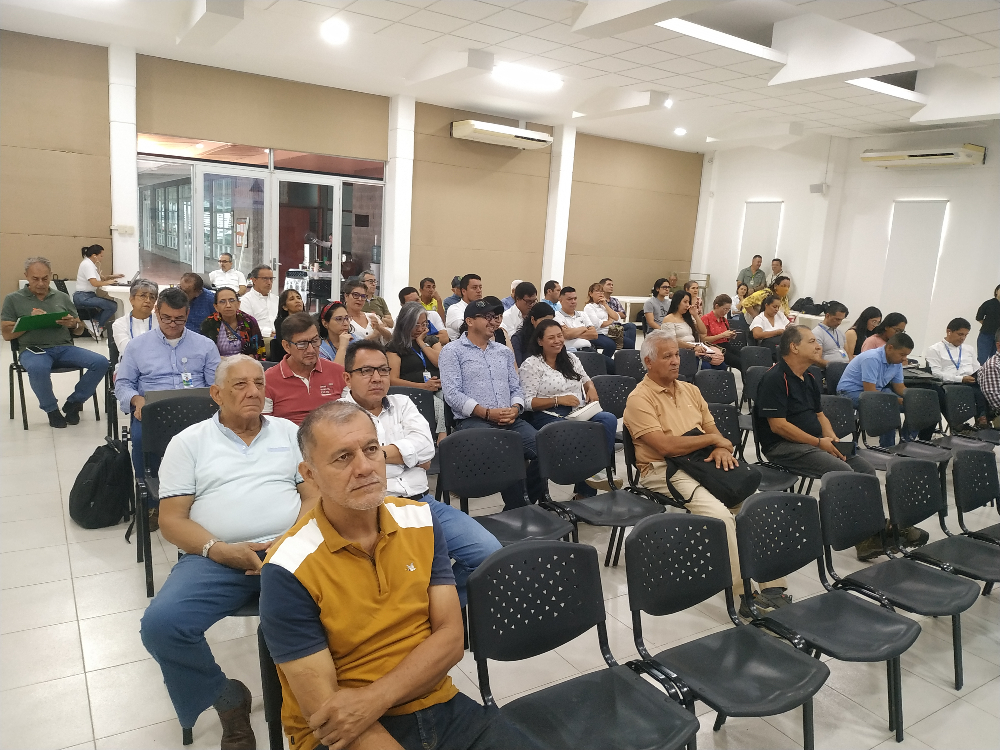The Biocarbon/AGROSAVIA Model for cultivating low-carbon rice in sustainable landscapes of the Orinoquía region was presented in two events held in the auditorium of Fondo Nacional de Arroceros FEDEARROZ and in the Departmental Library of Yopal on March 16 and 17, respectively.
Villavicencio, Meta. April 12, 2023. On March 16 and 17, the events to disclose the consultancy results were held in the auditorium of Fondo Nacional de Arroceros FEDEARROZ, Villavicencio headquarters, and the Departmental Library of Yopal, respectively. The central axis of these activities was the validation of low-carbon sustainable production models for rice cultivation in landscapes of the Colombian Orinoquia. Its objective: to present the results and the Biocarbon / AGROSAVIA model for low-carbon rice cultivation and the best practices guide for its adoption. This model significantly reduces greenhouse gas (GHG) emissions and increases soil organic carbon (SOC) in rice agroecosystems, reducing production costs and maintaining baseline productivity standards. Besides, feedback on the content was received, and the necessary actions for its implementation and progress were established.
These events were spaces for rapprochement and integrating scientific experiences and practical knowledge to consolidate the low-carbon rice model. Producers, public officials, associated representatives (Fedearroz), and entrepreneurs such as Arroz Blanquita and Arroz Supremo attended. The entrepreneurs lead the conversion path to a low-carbon model in their supply networks. However, the effective articulation with extension networks will strengthen the actions for constructing sustainable landscapes with a rice matrix in Orinoquía.
The work team of the La Libertad Research Center of AGROSAVIA, led by the researchers Jaime Humberto Bernal Riobo and Carmen Alicia Parrado Moreno, presented the Best Practices Guide for Low-Carbon Rice in the region. Meanwhile, the coordinator of Component II of the Orinoquia Biocarbon project, Mr. Fernando Leyva, presented the perspectives for the implementation and progress of the model and its integration into the Emissions Reduction Program (ERP). Moreover, also the fundamental role that producers, extension agents, policymakers, and the industry will play in this process.
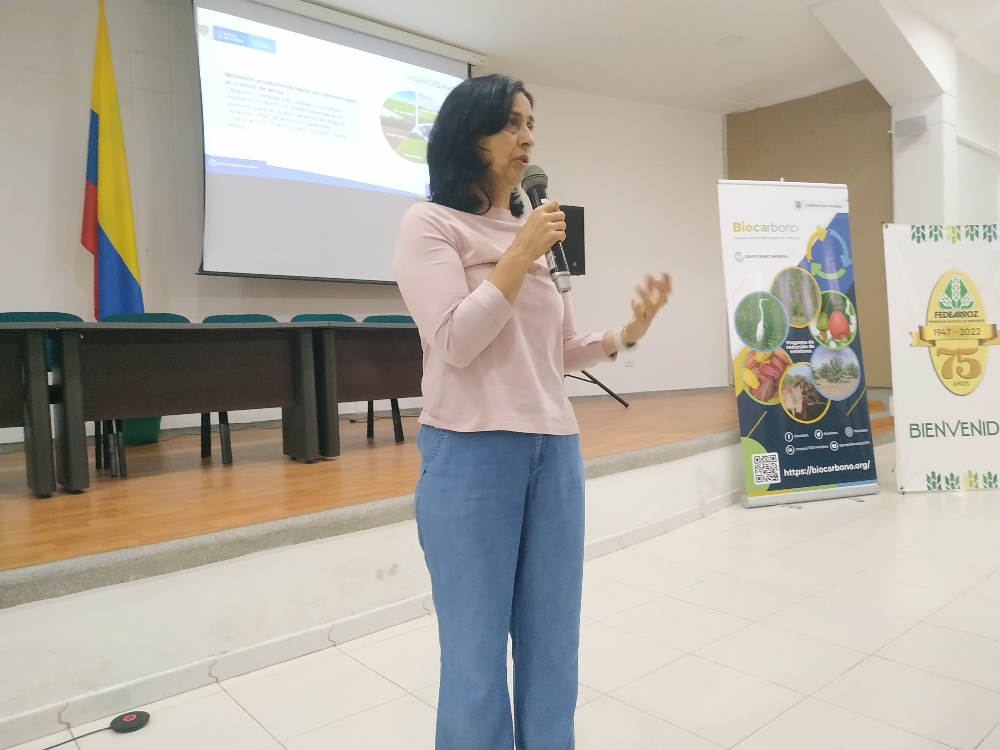
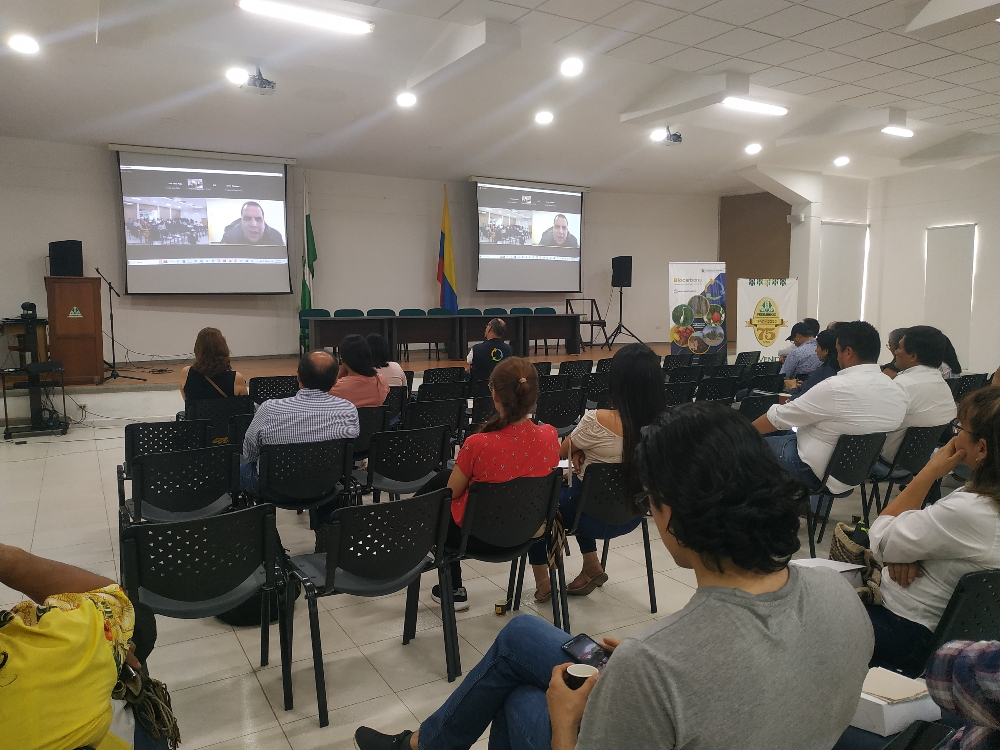
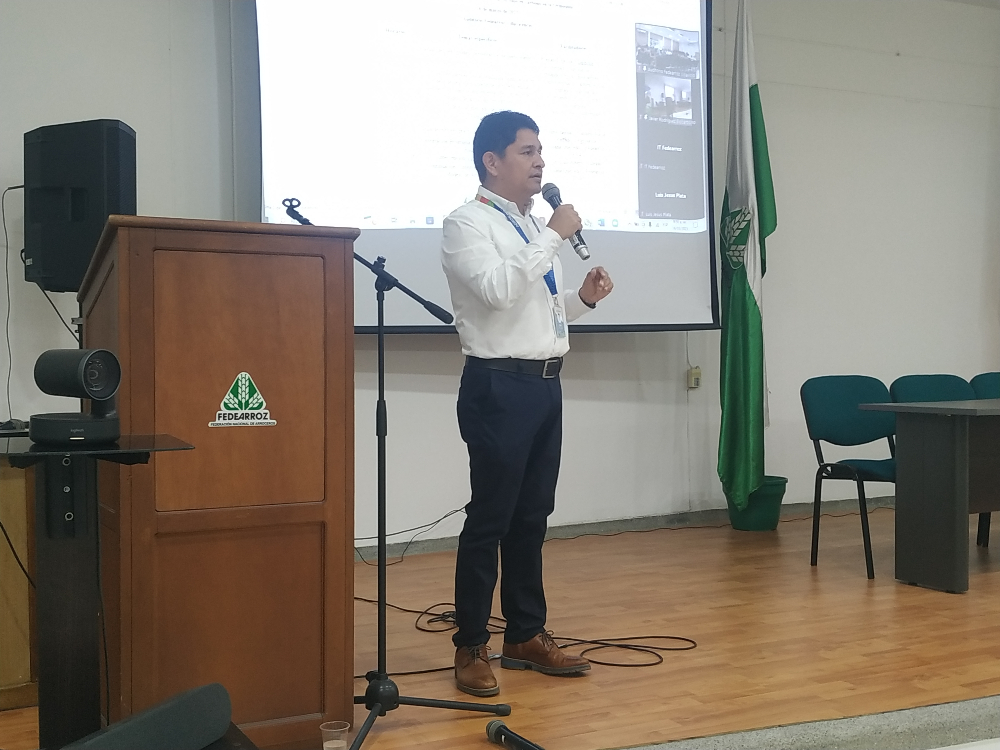
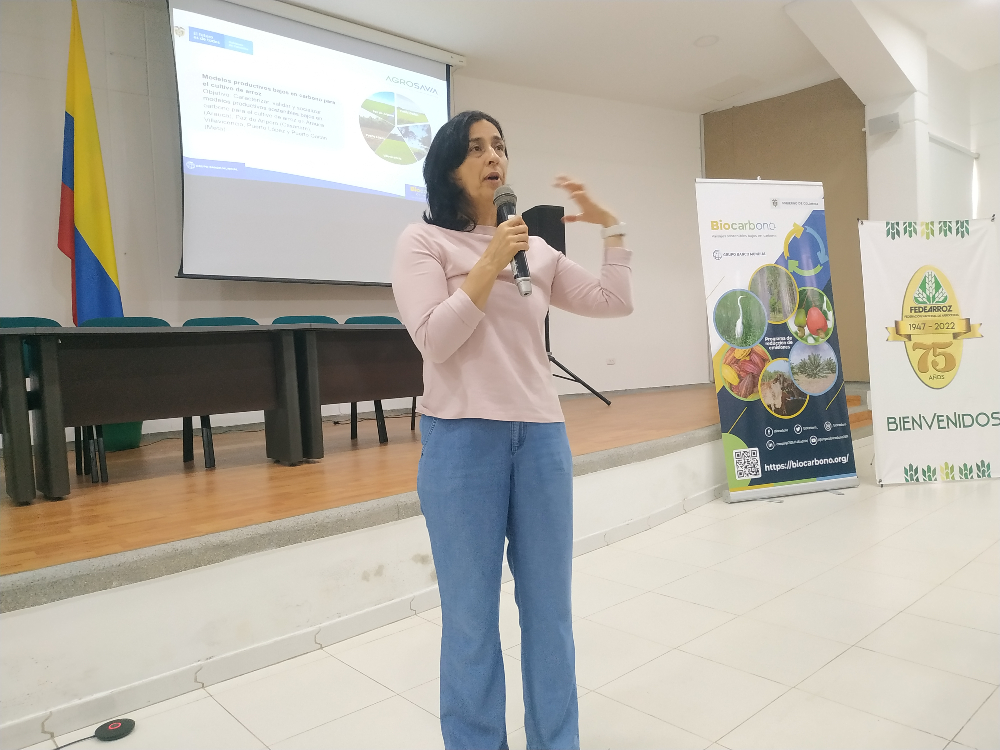
During these socialization days, the Vice Minister of Agriculture and Rural Development, Dr. Luis Alberto Villegas, intervened. He highlighted the importance of the research alliance results. Within the rice activity development framework, he underscored the need to make progress in implementing best practices not only to adapt but, above all, to mitigate the impacts of climate change and reduce competitive gaps, integrating the small producer. In addition, Dr. Villegas stressed the value of low-carbon rice agroecosystems in food security, social inclusion, and promoting biodiversity protection in Orinoquía as a path toward sustainability.
The accompaniment of Fedearroz and its actions with producers and technical assistants in good practices associated with the Mass Adoption of Technology Program (AMTEC, for its acronym in Spanish) was fundamental in the consultancy's achievements in the department of Meta. The intervention of the agronomist Liliana Quevedo evidenced the integration of the good practices of this program, and the best practices guide for a low-carbon rice model for the Colombian Orinoquia. While for Casanare and Arauca, the joint work with Arroz Blanquita and Arroz Supremo allowed the integration of producers-suppliers and envision creating and strengthening a low-carbon rice supply chain. For this reason, the intervention of Mr. José Manuel Suso in Yopal was extremely valuable as he showed the experience of Arroz Blanquita in business actions and agricultural practices for sustainability, determining his interest in advancing towards a low-carbon business model. Likewise, the presentation of the field agronomist, Mr. Heber Cubides of Arroz Supremo, evidenced the integration of approximately 50 producers willing to implement best practices to reduce emissions and increase SOC in rice crops and in their supply network.
The general conclusions of these activities determined the importance of training actions for trainers (extension agents and technical assistants), producers, and the integration of millers to make progress in the low-carbon rice model and the creation of sustainable agricultural landscapes in this region of the country. The joint and inter-institutional work is intended to make progress in knowledge management to implement the model and strengthen the competitiveness and profitability of low-carbon rice agroecosystems for small-, medium-, or large-scale producers. Thanks to this participatory and binding meeting, positive guidelines were generated for the departments of Meta and Casanare regarding reducing GHG emissions through actions for agriculture based on production-conservation.
See the Best Practices Implementation Guide for a Low-Carbon Rice Model at https://biocarbono.org/wp-content/uploads/2023/02/Guias-productivas-Plantilla-Editorial-.pdf
- More information here:
- Darlin Conrado Mosquera
- Communications, Identity and Corporate Relations Professional
- Research Center La Libertad
- Communications, Identity and Corporate Relations Advisory Office
- dconrado@agrosavia.co
- AGROSAVIA



